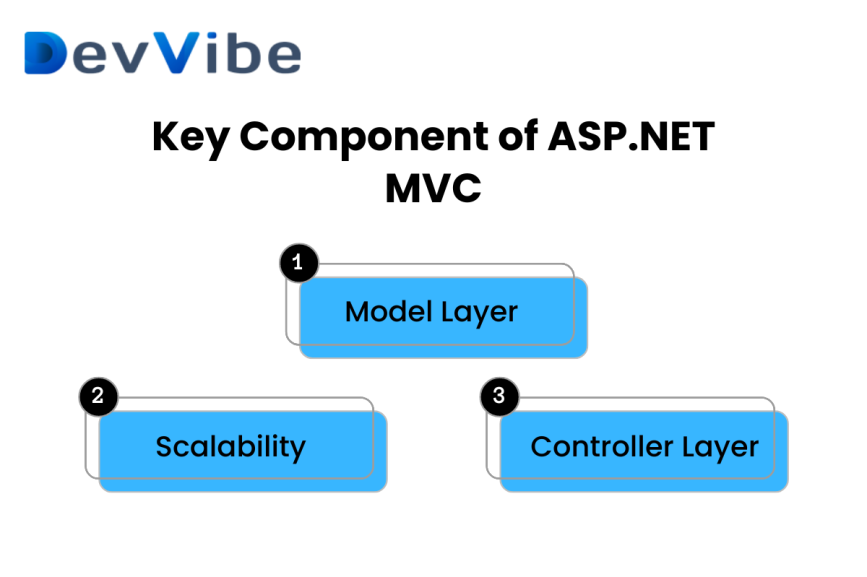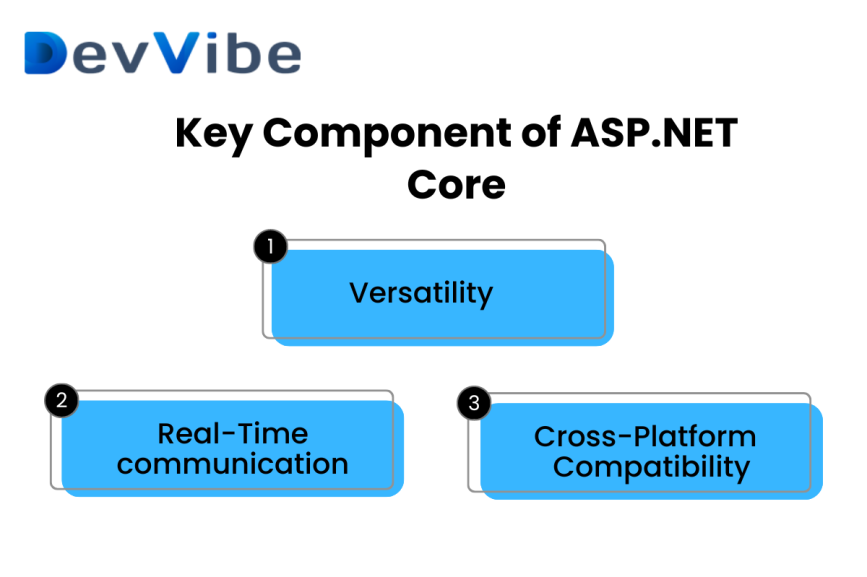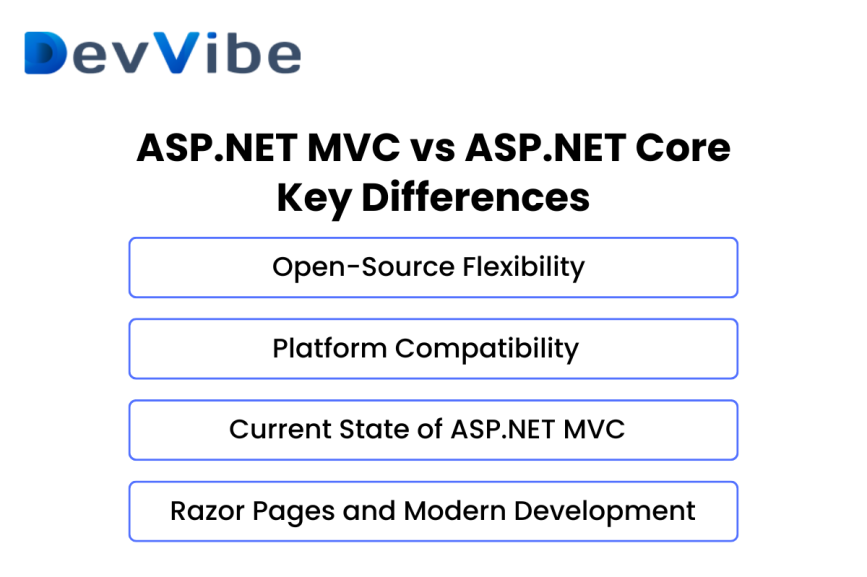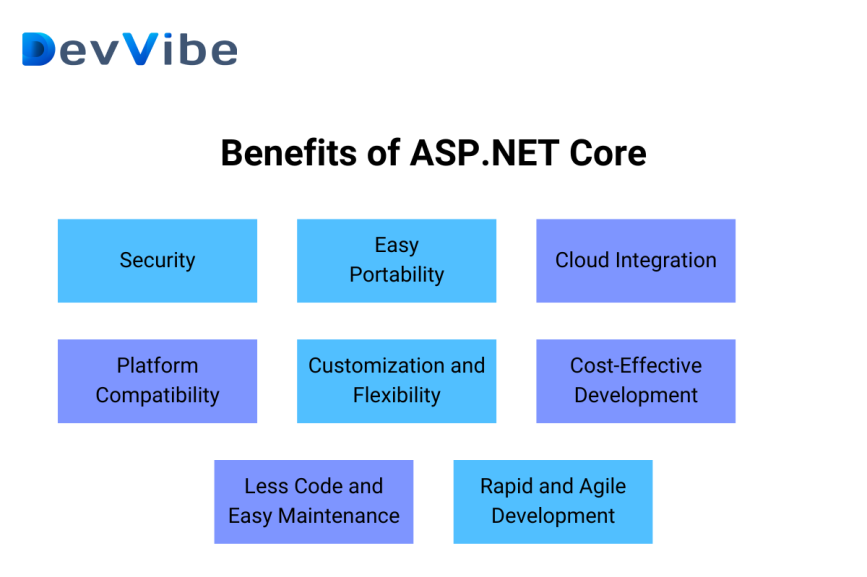Quick Overview
ASP.NET MVC vs ASP.NET Core: This blog will guide you through the differences between the ASP.NET MVC framework and the ASP.NET Core platform. You will explore the core features, benefits, and characteristics of these .NET technologies, helping you choose the right technology for developing enterprise applications with improved metrics.
Introduction
ASP.NET MVC and ASP.NET Core are two leading technologies from Microsoft, widely used to develop enterprise-grade applications for businesses ranging from SMEs to Fortune 500 companies. However, as business and technology continue to evolve, choosing between these two platforms for software development has become increasingly complex.
This blog aims to clarify the differences between ASP.NET MVC and ASP.NET Core, helping you decide which technology best suits your needs now and in the long run.
What is ASP.NET MVC Framework?
The ASP.NET MVC framework is a significant component of the .NET technology stack, used primarily for creating dynamic business applications. It uses the MVC architecture which consists the Model, View, and Controller layers that allows developers to efficiently manage the backend, user interface, and application logic.

- Model Layer: Manages data, streamlining storage and retrieval operations.
- View Layer: Renders and updates the user interface in response to data changes.
- Controller Layer: Handles routing, user requests, and operational tasks.
The MVC architecture enhances testing and maintenance, enabling developers to identify and fix bugs without disrupting other layers. The latest version, MVC5, remains popular, though developers are increasingly shifting towards ASP.NET Core, a trend we’ll explore in more detail.
What is ASP.NET Core Framework?
ASP.NET Core is an open-source, cross-platform framework within the .NET ecosystem. Like ASP.NET MVC, it was developed by Microsoft, but it introduces several modern enhancements that make it a preferred choice for various applications.
Key Features of ASP.NET Core

- Cross-Platform Compatibility: Supports Windows, Linux, macOS, and Docker containers.
- Versatility: Suitable for web applications, REST APIs, microservices architecture, and container-based apps.
- Real-Time Communication: Enables full-duplex communication between client and server.
Since its release in 2016, ASP.NET Core has gained popularity due to its performance, security, and modern architecture. It also integrates seamlessly with the broader .NET ecosystem, allowing developers to leverage a wide range of libraries, tools, and programming languages.
ASP.NET MVC vs ASP.NET Core: Key Differences

Current State of ASP.NET MVC
According to Microsoft, MVC5 is the final version of the ASP.NET MVC framework. While there is no official end-of-support date, it’s clear that ASP.NET MVC will eventually be phased out, making it less advisable for new projects. As a result, many development companies are transitioning to ASP.NET Core to stay ahead of the curve.
Platform Compatibility
- ASP.NET MVC: Limited to Windows OS.
- ASP.NET Core: Compatible with Windows, Linux, macOS, and Docker containers.
ASP.NET Core’s cross-platform capabilities allow for broader reach and more efficient maintenance, saving time and resources by supporting a single codebase across multiple platforms.
Razor Pages and Modern Development
ASP.NET Core introduces Razor Pages, a more streamlined approach to building web pages. It also supports a unified programming model, tag helpers, view components, and dependency injection, making it easier to develop and maintain applications compared to ASP.NET MVC.
Open-Source Flexibility
ASP.NET Core’s open-source nature allows developers to customize its core components to meet specific requirements. This flexibility makes it ideal for organizations requiring scalable, high-performance applications.
Benefits of ASP.NET Core for Web Application Development

Platform Compatibility
ASP.NET Core’s compatibility with major operating systems and container platforms allows for deployment in hybrid environments, such as cloud and on-premises infrastructures. This flexibility not only broadens your reach but also reduces costs associated with maintaining separate applications for different platforms.
Cloud Integration
ASP.NET Core is optimized for cloud platforms such as AWS, Azure, IBM Cloud, and Google Cloud. Its built-in tools and components simplify cloud deployment, enhancing availability, collaboration, and ROI.
Security
ASP.NET Core offers robust security features, including HTTPS enforcement, authentication, authorization, and cross-site request forgery protection. These features align with industry security standards, making ASP.NET Core a top choice for secure application development.
Customization and Flexibility
ASP.NET Core’s open-source architecture allows for deep customization, making it suitable for businesses with specific needs. It can handle millions of users and high traffic with minimal failure, ensuring reliability and performance.
Rapid and Agile Development
ASP.NET Core’s easy setup and integration with Visual Studio IDE enable rapid development. Its user-friendly interface and minimal complexity make it ideal for agile development, allowing for quick implementation and testing of changes.
Cost-Effective Development
ASP.NET Core development is cost-effective, with a wide range of affordable resources and skilled developers available. Whether you choose to outsource or hire in-house, ASP.NET Core offers a high return on investment.
Easy Portability
ASP.NET Core’s adherence to the .NET standard ensures that its code can run on any platform. This portability reduces development efforts and costs, making it easier to adapt applications to new environments.
Less Code and Easy Maintenance
ASP.NET Core’s streamlined architecture and dependency injection reduce the code required, making applications easier to maintain and debug. This efficiency not only speeds up development but also enhances security by minimizing the attack surface.
Conclusion
In the comparison of ASP.NET MVC vs ASP.NET Core both technologies have their merits. However, with the impending end of support for ASP.NET MVC and the advanced features of ASP.NET Core, the latter is clearly the better choice for new projects. ASP.NET Core not only future-proofs your applications but also offers numerous advantages in performance, security, and cost-effectiveness.
DevVibe is a leading software company specializing in ASP.NET MVC and ASP.NET Core. With our expertise, we help organizations develop robust, scalable and secure applications. By choosing devvibe, you can leverage our deep knowledge of ASP.NET Core to avoid future migration challenges and fully capitalize on the platform’s extensive benefits.
ASP.NET MVC vs ASP.NET Core FAQs
Can I use ASP.NET MVC now and switch to ASP.NET Core in the future?
Yes, you can start with ASP.NET MVC and later migrate to ASP.NET Core. However, consider the additional costs, complexities, and time required for such a migration.
When will the support for the ASP.NET MVC framework be stopped?
Microsoft has not announced an official end-of-support date for ASP.NET MVC. However, it’s advisable to plan for a transition to ASP.NET Core, as future support will eventually cease.
Which is best for developing apps for Windows, macOS, and Linux devices?
ASP.NET Core is the preferred choice for cross-platform application development, offering broader compatibility, cost savings, and ease of maintenance.

 Australia:
Australia:  Pakistan:
Pakistan:  USA:
USA: 







